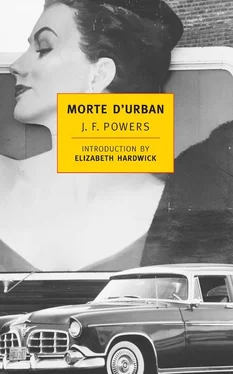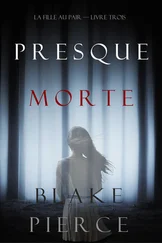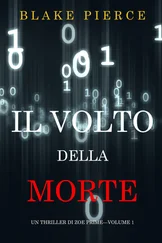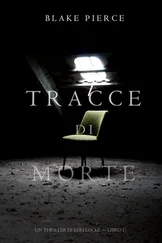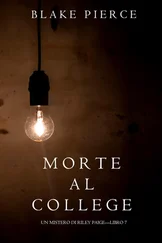“You will ?” said the man.
Unfortunately, however, there was the matter of a license for the car, which had to be procured in Olympe, fourteen miles away. The dealer offered to send his wife for it, but this wasn’t good enough for Billy. He said that he’d been led to believe that the wagon was ready to roll, and he wasn’t going to lose time because some people didn’t know their business. He’d take delivery at St Clement’s Hill in one hour’s time or not at all. Father Urban, who had seen Billy like this before, in restaurants, followed him out of the place, feeling sorry for the dealer and hoping for the best. For Father Urban, it was a long one and three-tenths miles back to St Clement’s Hill. On the way, he tried some small talk on Billy, which was no good, and then on Paul, which wasn’t much better, for Paul did his best to observe the silence of his master.
At the Hill, they went straight to the refectory, where five retreatants were eating at the long table, and after Paul had been introduced to Wilf and Jack, they all sat down at the round table to beer and hamburgers, frozen sweet corn from their own garden, and strained conversation. Father Urban didn’t feel like talking, and he didn’t feel like eating. (Billy had removed his watch from his wrist, had put it by his plate, and was keeping an eye on it.) Oh, to be able to say, “Now, look here, Billy. What if the man does come a little late? He’s trying to do his best, and you have to give him credit for that. God does, you know. That’s really all that counts with Him. Now, how about it?”
No, it wouldn’t do. Father Urban’s influence with Billy was considerable, and growing stronger, but it wasn’t up to anything like that. Meanwhile, Billy was doing a certain amount of tangible good in the world, and this might more than compensate for his little crimes against humanity, some of which, anyway, were atoned for right on the spot by Father Urban through his silent sufferings.
“By the way,” Wilf said to Father Urban. “You had a visitor. A Mr Studley. He was in the neighborhood and thought he’d stop by.”
“I don’t really know him,” Father Urban said.
“Seems to think we could use an air strip here.”
“Bit of a nut on that subject — and others,” said Father Urban, thinking if there was one thing Billy hated, it was the airplane.
“He seemed nice enough. Non-Catholic.”
Ten minutes later Wilf was still leading the conversation, and it was still going nowhere. He said he’d spoken to the sheriff again about people parking on the golf course at night. The only response came from Jack, who, given more of an opportunity to talk than he usually got, said he understood (from a man he’d met in the Duesterhaus post office) that the trespassers were only looking for night-crawlers. “They’re used for bait,” he said, addressing this remark to Billy.
“Well, he made it,” Billy said. From where he was sitting, he could see the driveway without turning his head.
“Thank God,” said Father Urban.
“You don’t blame me, do you, Father?” Billy asked.
“No.”
A moment later, the doorbell rang, and Brother Harold answered it.
“Just ask the man how much it is,” Billy called after him, taking out his checkbook.
Wilf looked at Father Urban, seeking some clue to what was going on. Brother Harold reappeared, bringing a bill of sale and some other documents. Billy glanced at these and then passed them to Wilf without a word of explanation. That was how Billy gave.
When Wilf had got it all straight, he thanked Billy in the name of the Order, and said he was glad it hadn’t been necessary to trade in the pickup truck, which, by and large, had given good service and very likely would continue to do so. “I think this calls for a little celebration, and don’t forget them ,” said Wilf, meaning the five retreatants.
Brother Harold brought in another round of beer. Father Urban left the room and led in the dealer. It was Father Urban’s intention to make peace between the dealer — a Mr Swanson, who said all his friends called him Swanny — and Billy, who said there used to be a song by that name.
There was a feeling of good fellowship in the refectory now. Mr Swanson, all the better for the bad time Billy had given him earlier, seemed very happy to be present. He took no part in the conversation, but he was enjoying his beer, and when he saw Wilf putting salt in his, was not afraid to ask for the shaker. Paul, not much for beer, he said, went out to look at the station wagon.
“I wanted to serve more of a meal than this,” Wilf said to Billy, “but Father Urban, here, said no. He said you’d only want what we usually have. Of course, we don’t have beer every day,” Wilf said, eyeing Mr Swanson.
“No,” said Mr Swanson.
“I didn’t come here to eat, but you don’t have to apologize for this,” Billy said. Then he addressed Father Urban. “You know Father Gabriel, don’t you? The Dalmatian?”
“Oh yes.” So Father Gabriel was still buzzing Billy.
“They had me out there for a meal recently,” Billy said. “Served three kinds of hock, and then the head man had the nerve to tell me they were a very penitential order.”
Father Urban laughed. “I wish we could say the same here — and serve the same.”
“They were just spreading themselves on your account, Mr Cosgrove. They’re not a wealthy order.” This from Jack.
Father Urban could have killed him.
Wilf and Mr Swanson were discussing the pickup truck. “But what if we traded it in — what would you allow us then ?”
“Hard to say. It would depend on what you had in mind. I might go as high as seventy-five dollars.”
“I see. Well, thank you.”
Billy had expressed a desire to visit the chapel, and so, when lunch was over, the entire party moved in that direction.
“We’ll drive you back to town when we leave,” Billy said to Mr Swanson.
Father Urban was gratified to hear this.
As a sacred artist, Brother Harold had done as well as could be expected of a young man whose other occupations — cooking, housekeeping, gardening, and attendance at the golf course — left him little time for church decorating. He had made the most of his deficiencies by painting in the new Byzantine manner. His winged ox, lion, man, and eagle, viewed as a group in that setting, were quite recognizable as the four Evangelists. Father Urban explained who they were, however, in deference to Mr Swanson.
“They’re not representational in the photographic sense,” said Brother Harold.
“Who’s this?” Billy asked.
Father Urban explained that this — a stag drinking from three wiggly lines — was known as “The Living Waters” and symbolized not only baptism but the other sacraments, and therefore, you might say, the Church.
It was apparent to Father Urban that Billy wasn’t taken with Brother Harold’s iconography. Nevertheless, as they were leaving the chapel, Billy bucked up and said, “You don’t have to apologize for any of this, Brother.”
After they’d left the chapel, Father Urban said to Billy: “Sure you don’t want to play a few holes?”
“Not now,” Billy said. “Maybe when we come back.”
So they made their way out to the station wagon. Paul had everything loaded, including Father Urban’s bag, and was sitting behind the wheel.
“I’ll ride in front with him, and that way I can tell him a few things about the car,” Mr Swanson said, as if he hoped thus to work his passage into town.
“Good idea,” Billy said.
Father Urban feared that Mr Swanson had been planning for some time to say what he’d just said, and that Billy didn’t like it — didn’t like having his little friendly gesture of offering Mr Swanson a ride turned to his own advantage.
Читать дальше
